Introduction:
In today’s health-conscious world, supplements are often hailed as quick fixes for everything from boosting energy to enhancing mood. But while many people embrace these tiny capsules and powders without a second thought, there’s a hidden side that’s rarely discussed. In this listicle, we’ll explore “10 Dangerous Side Effects of Common Supplements Nobody Talks About.” Prepare to uncover the unexpected risks that could come with your daily regimen. By the end, you’ll be better informed and equipped to make safer choices for your health journey. Let’s dive into what you need to know!
1) Vitamin E: While often marketed for its antioxidant properties, excessive Vitamin E can increase the risk of bleeding, especially in those on blood-thinning medications
Vitamin E is often celebrated for its antioxidant capabilities, believed to combat free radicals and promote overall health. However, there’s a lesser-known side to this seemingly benign vitamin. When taken in excess, Vitamin E can pose significant health risks, particularly for individuals who are taking blood-thinning medications such as warfarin or aspirin. The danger lies in Vitamin E’s potential to interfere with clotting processes, increasing the likelihood of bleeding complications.
Some of the key points to consider include:
- Bleeding Issues: High doses of Vitamin E can lead to uncontrollable bleeding, which can be life-threatening.
- Interaction with Medications: If you are on anticoagulants, it’s essential to consult a healthcare provider before adding Vitamin E to your regimen.
- Personalized Needs: Each individual’s response may vary, and factors such as age, health condition, and dosage can influence interactions.
For a clearer understanding, here’s a simplified comparison of safe versus hazardous amounts:
| Dosage | Effect |
|---|---|
| 15 mg (Recommended Dietary Allowance) | Safe, supportive of health |
| 200 mg and above | Potentially dangerous, increased risk of bleeding |
With the allure of health benefits, it’s easy to overlook the potential downsides of supplements like Vitamin E. Always prioritize safety and ensure you’re well-informed about the supplements you choose to take.
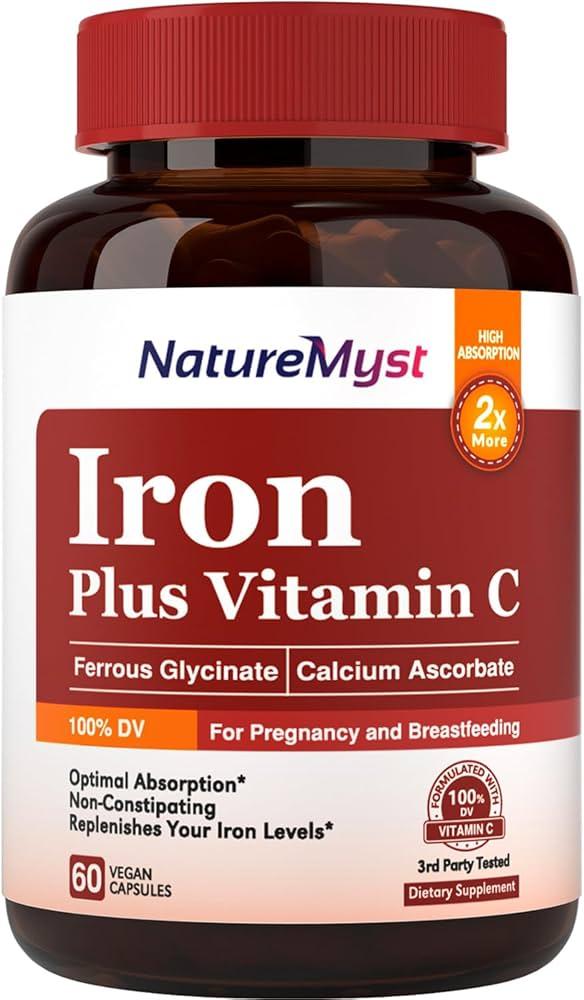
2) Iron: Commonly taken to combat fatigue, too much iron can lead to gastrointestinal issues, and in severe cases, organ damage, making proper dosing crucial
Iron is often hailed as a superhero for combating fatigue and boosting energy levels. While it plays a vital role in various bodily functions—such as oxygen transport and cellular metabolism—excess consumption can shift its reputation from hero to villain. The delicate balance of iron in the body means that too much can wreak havoc on your health, leading to a range of gastrointestinal side effects.
- Stomach pain: An overload of iron can irritate the gastrointestinal lining, resulting in painful cramps and discomfort.
- Nausea and vomiting: These symptoms can occur as the body attempts to expel the excess iron, a defensive mechanism that can disrupt your day-to-day activities.
- Constipation or diarrhea: The unexpected excess of iron can throw off your digestive rhythm, leading to unpredictable bowel movements.
In severe cases, chronic iron overload can lead to more dire consequences, such as permanent damage to vital organs. This phenomenon occurs when excess iron accumulates in tissues, particularly the liver and heart. To understand the potential risks, consider the following table outlining recommended daily allowances versus dangerous excess levels:
| Age Group | Recommended Daily Allowance (mg) | Potential Toxic Level (mg) |
|---|---|---|
| Adult Men | 8 | 45 |
| Adult Women | 18 | 45 |
| Children (1-3 years) | 7 | 40 |
With this knowledge, it’s clear that while iron supplementation can be beneficial, it’s essential to approach it with caution. Always consult a healthcare provider for guidance on proper dosing to avoid the dark side of this commonly used supplement.

3) Fish Oil: Known for its heart health benefits, high doses of fish oil can thin the blood and may lead to increased bleeding risks during surgery or after injury
While many people turn to fish oil for its renowned heart health benefits, it’s important to understand that taking high doses can have some concerning consequences. Fish oil is rich in omega-3 fatty acids, which are known for their capabilities to lower triglyceride levels and reduce inflammation. However, the same properties that make fish oil beneficial can also pose significant risks, especially when it comes to blood coagulation.
When consumed in large quantities, fish oil acts as a natural anticoagulant, thinning the blood and potentially leading to increased bleeding. This can be particularly hazardous in scenarios such as:
- Undergoing surgical procedures, where excessive bleeding may complicate recovery.
- After sustaining an injury, where the body’s ability to stop bleeding is compromised.
- In individuals who already have clotting disorders or are on medications that affect blood thickness.
Table 1 highlights potential bleeding-related complications associated with high doses of fish oil:
| Situation | Potential Risk |
|---|---|
| Surgery | Excessive bleeding and extended recovery time |
| Injury | Delayed healing and increased blood loss |
| Medication Interaction | Enhanced effects of blood thinners, leading to serious complications |
For those considering fish oil supplements, moderation is key. Consulting with a healthcare professional can help balance the cardiovascular benefits while minimizing the risk of bleeding issues.
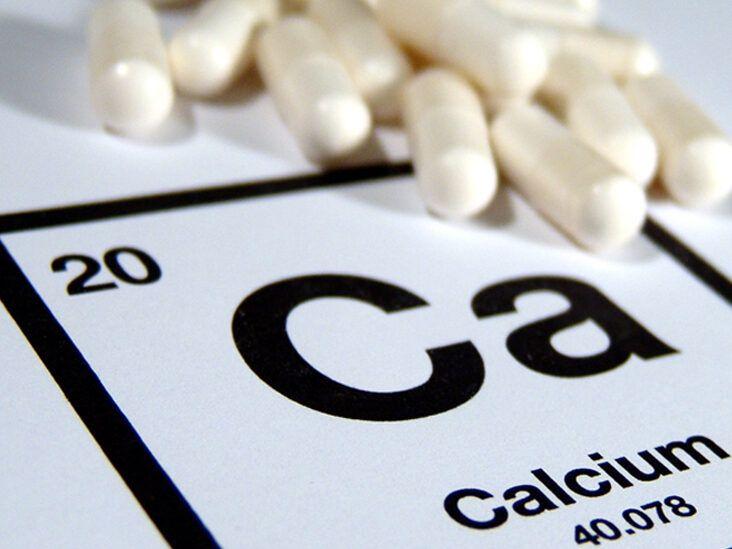
4) Calcium: While essential for strong bones, excessive calcium supplementation can cause kidney stones and may contribute to heart problems
Calcium is often hailed as a superhero for our bones, yet many people overlook the dangers associated with its excessive intake, particularly from supplements. While calcium is crucial in maintaining bone density and preventing osteoporosis, too much of a good thing can turn dark. Over-supplementation can lead to the formation of kidney stones, an incredibly painful condition that often requires medical attention. These stones develop when calcium crystallizes in the kidney, disrupts normal function, and can result in severe discomfort or obstructive issues.
Moreover, there’s growing concern about the link between high calcium intake and cardiovascular problems. Research indicates that excess calcium may contribute to heart diseases—particularly when derived from supplements rather than dietary sources. This can occur because surplus calcium can cause a buildup of plaque in arteries, which is a significant risk factor for heart attack and stroke. To navigate this tricky terrain safely, many health professionals recommend relying on dietary sources of calcium, such as leafy greens, dairy, nuts, and fish, rather than supplements unless specifically advised by a doctor.
Here’s a quick look at some noteworthy risks associated with excessive calcium supplementation:
| Risk | Impact |
|---|---|
| Kidney Stones | Pain and obstruction in urinary tract |
| Heart Disease | Increased risk of heart attack and stroke |
| Gastrointestinal Issues | Constipation, bloating, and discomfort |
| Hypercalcemia | Elevated calcium levels in blood, leading to confusion and fatigue |
Staying informed about these side effects allows individuals to make more educated choices regarding supplement use and to prioritize natural dietary sources instead. Always consult with a healthcare professional before starting any new supplement regimen to ensure it aligns with your health status and nutritional needs.
5) St. Johns Wort: Popular for treating mild depression, this herbal supplement can interact dangerously with numerous medications, including antidepressants and birth control
St. John’s Wort is often hailed as a natural remedy for mild depression, but it comes with a serious caveat: its ability to interact with a wide array of medications. This herb, known for its yellow flowers, can significantly reduce the effectiveness of various pharmaceuticals, leading to potentially dangerous consequences. While it may seem harmless, the risks associated with its use are worth considering.
Among the most critical interactions are:
- Antidepressants: Combining St. John’s Wort with prescription antidepressants can lead to a severe condition called serotonin syndrome, which is characterized by symptoms like confusion, rapid heart rate, and even seizures.
- Birth control: This herbal supplement can diminish the effectiveness of hormonal contraceptives, increasing the risk of unintended pregnancy.
- Other medications: It may reduce the effectiveness of anticoagulants, anti-HIV medications, and cancer treatments, potentially altering their intended therapeutic effects.
Before starting any supplement, especially St. John’s Wort, it’s crucial to consult with a healthcare professional who can evaluate potential interactions based on your specific medication regimen. Understanding these risks can help you maintain both your mental and physical health without the worry of unintentional side effects.

6) Niacin: Used to improve cholesterol levels, high doses can cause flushing, liver damage, and stomach ulcers, creating a fine line between benefit and harm
Niacin, also known as vitamin B3, has gained popularity for its ability to improve cholesterol levels, especially among individuals looking to manage heart health. While moderate doses can provide these benefits, high doses can introduce significant risks that users should be aware of. It’s crucial to tread carefully with this supplement, as it straddles a fine line between therapeutic advantages and potential harm.
- Flushing: One of the most common side effects is flushing, a sudden warmth and redness in the skin, particularly on the face and neck. Although this is usually harmless, it can be uncomfortable and alarming for some.
- Liver Damage: Chronic high doses can lead to hepatotoxicity, or liver damage, which is often asymptomatic until it’s severe. Regular monitoring of liver enzymes is recommended for long-term users.
- Stomach Ulcers: Excessive niacin can irritate the gastrointestinal tract, potentially leading to ulcers. Symptoms like abdominal pain or bleeding should never be ignored.
Understanding the balance of benefits and risks is essential when considering niacin supplementation. It’s advisable to consult a healthcare provider to evaluate personal needs and potential interactions with other medications. Below is a brief summary of the risks and guidance about niacin use:
| Risk | Symptoms | Recommendations |
|---|---|---|
| Flushing | Redness, warmth | Consider lower doses |
| Liver Damage | Fatigue, jaundice | Regular liver tests |
| Stomach Ulcers | Abdominal pain | Avoid excessive intake |
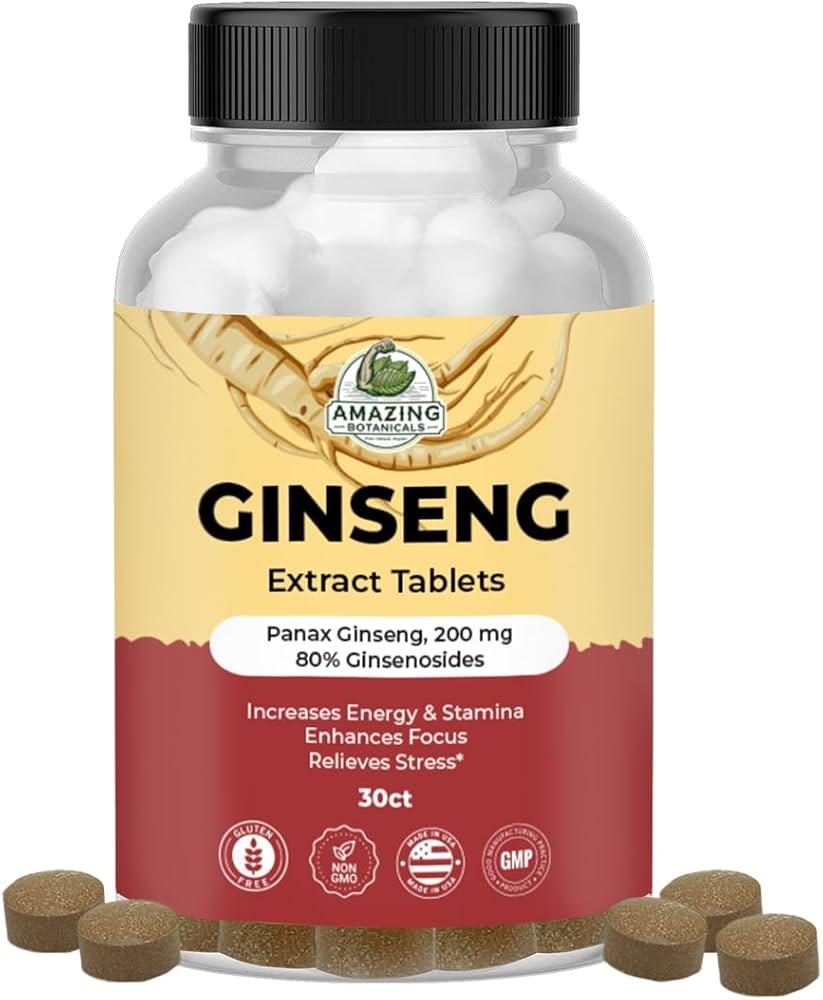
7) Ginseng: Often taken for energy and immune support, excessive use can lead to insomnia, headaches, and digestive issues, making moderation essential
Ginseng is a popular herbal remedy, celebrated for its potential to enhance energy levels and boost the immune system. However, while it may offer some benefits, users should be wary of the possible side effects that can arise from excessive consumption. Many believe that more is better, leading to increased dosages that can trigger several health issues.
Common adverse effects associated with overindulgence include:
- Insomnia: High doses of ginseng can disrupt your sleep cycle, causing restlessness and difficulty falling asleep.
- Headaches: Frequent use beyond recommended amounts has been linked to recurring headaches, which can detract from daily productivity.
- Digestive Issues: Some users report nausea, diarrhea, or other gastrointestinal discomfort after consuming large quantities.
To ensure a safe and beneficial experience with ginseng, it’s crucial to practice moderation. Consider starting with lower doses and assessing how your body reacts before gradually increasing to the recommended amounts. Keeping a health journal can also help you track any adverse reactions, allowing for informed decisions about your supplement use.
| Possible Side Effects | Symptoms |
|---|---|
| Insomnia | Restlessness, Difficulty sleeping |
| Headaches | Recurring headaches |
| Digestive Issues | Nausea, Diarrhea |
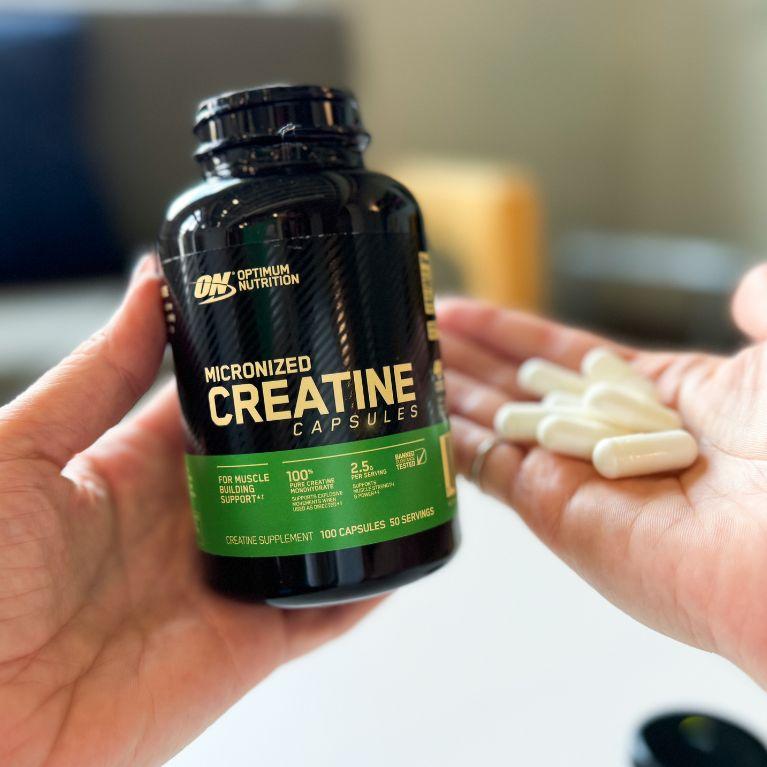
8) Creatine: Favored by athletes for muscle gain, too much creatine can strain the kidneys and lead to dehydration if not used correctly
Creatine is a popular supplement among athletes and bodybuilders, celebrated for its ability to enhance muscle mass and improve exercise performance. However, while it offers certain benefits, it’s crucial to understand that excessive consumption can lead to serious health concerns. A common issue for those who overuse creatine is kidney strain, as this supplement increases the body’s demand for filtration. Over time, this added pressure on the kidneys may contribute to long-term damage if proper hydration is not maintained.
In addition to renal strain, inadequate water intake while supplementing with creatine can heighten the risk of dehydration. When the body stores excess creatine, it draws water into the muscles, which may leave other systems in need of hydration. This imbalance can lead to symptoms such as:
- Muscle cramps
- Fatigue
- Dizziness
- Heat intolerance
To mitigate these risks, it’s essential to adhere to the recommended dosages and maintain adequate hydration levels—particularly during intensive training sessions. Understanding your own body and its limits is key to safely incorporating creatine into your routine.
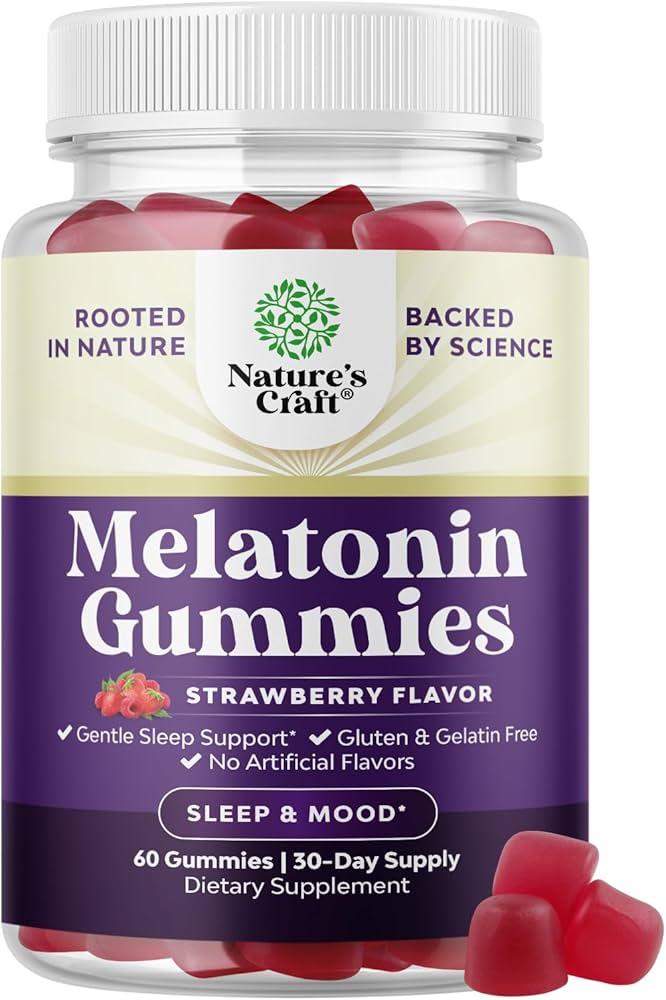
9) Melatonin: A go-to for sleep troubles, overuse can disrupt natural sleep cycles, leading to grogginess and dependency on supplements for rest
Melatonin is widely known as a natural remedy for sleepless nights and is often recommended for those struggling with insomnia or disrupted sleep patterns. However, while it can offer short-term relief, over-dependence on this supplement can lead to unintended consequences that many users overlook. When taken excessively, melatonin can interfere with your body’s ability to produce the hormone naturally, resulting in a cycle of reliance on the supplement to achieve restful sleep.
- Grogginess: Users might wake up feeling lethargic or disoriented due to an imbalance that melatonin supplementation can cause.
- Dependency: Relying on melatonin regularly can weaken your body’s innate sleep mechanisms, making it challenging to fall asleep without it.
- Timing Issues: Misuse of melatonin can lead to sleep timing disruptions, causing difficulty in achieving a natural sleep-wake cycle.
In fact, excessive usage can yield a spectrum of effects that could jeopardize your overall well-being. Here’s a quick overview of how melatonin might impact your sleep quality over time:
| Effect of Overuse | Description |
|---|---|
| Altered Sleep Cycles | Shifts in natural circadian rhythms leading to irregular sleep patterns. |
| Increased Nighttime Awakenings | Higher chances of waking up multiple times throughout the night. |
| Daytime Fatigue | Persistent tiredness that can affect productivity and mood. |
Understanding the potential downsides of melatonin supplementation is crucial. While it may seem like a benign solution to sleepless nights, moderation is the key to ensuring it remains an effective and safe option. Relying solely on external aids can mask underlying issues that should be addressed through healthier lifestyle choices and sleep hygiene practices.

10) Probiotics: While beneficial for gut health, too many probiotics can cause bloating and digestive upset due to an overwhelming influx of bacteria
Probiotics are often hailed as the saviors of gut health, promising to restore balance and improve digestion. However, it’s crucial to understand that overloading on these beneficial bacteria can lead to some unwanted side effects. An influx of too many probiotics can disrupt your digestive system, leading to discomfort like bloating, gas, and cramping. For those who are not accustomed to high doses of probiotics, your gut may react by becoming increasingly irritable.
Exceeding your body’s tolerance levels can lead to an overwhelmed microbiome, causing a condition known as dysbiosis, where the beneficial bacteria become imbalanced. This can result in symptoms that are ironically similar to those you were trying to alleviate. Before jumping into a probiotic regimen, consider these key points:
- Start Slow: Introduce probiotics gradually to allow your gut to adapt.
- Consult a Professional: Always discuss with a healthcare provider to tailor the right type and dose for your needs.
- Monitor Your Reactions: Pay close attention to how your body responds and adjust accordingly.
| Probiotic Strain | Potential Benefits | Risk of Overconsumption |
|---|---|---|
| Lactobacillus | Improves digestion | Bloating, gas |
| Bifidobacterium | Boosts immunity | Diarrhea, stomach cramps |
| Saccharomyces boulardii | Alleviates antibiotic diarrhea | Overgrowth issues |
Let’s Wrap Things Up
And there you have it—10 dangerous side effects of common supplements that often go unmentioned. While supplements can offer health benefits, it’s crucial to stay informed and approach them with caution. Always consult with a healthcare professional before starting any new regimen. Your health journey should be safe and informed! If you found this article helpful, feel free to share it with friends and family so they can be aware too. Take care and stay healthy!





